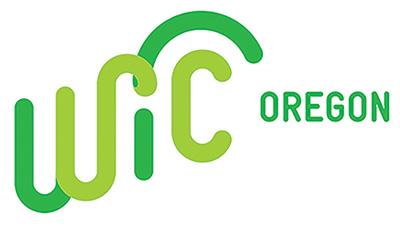WIC
Thank you for your interest in the Jefferson County WIC Program!
WIC serves pregnant, postpartum or breastfeeding women or children under five years old. Dads, grandparents, foster parents or other guardians may apply for WIC for their children.
The Jefferson County WIC program is committed to creating systems of health equity for all individuals, families and communities. We strive to maintain a welcoming and trauma-informed work environment that reflects and supports the racial and ethnic diversity of our participants, local agencies, partners and communities.
Applying for WIC
To make an appointment, call Jefferson County Public Health at (541) 475-4456. WIC Program staff can tell you what to bring to your appointment.
At your appointment, a WIC certified professional will check your diet and review your health history. You will receive nutrition information and counseling, referrals to other services and food instruments (checks) to buy foods such as:
-Milk -Cheese
-Eggs -Tuna fish
-Cereal -Fruit juice
-Infant formula -Peanut butter
-Baby jar foods -Whole grains
-Fruits and vegetables -Bread and tortillas
-Rice -Dried beans & peas
How WIC Works
The WIC staff is a caring team of experts who provide:
- Counseling on how to use WIC foods to improve health
- Food instruments to buy foods that help keep you healthy and strong
- Information and referrals for prenatal care and shots for your baby
- Support with breastfeeding your baby
- Classes on shopping for foods, recipes, and taking care of your baby
- Information on good eating during pregnancy and breastfeeding, and how to feed your child
- Referrals to other services like Immunizations, and programs like Food Stamps, TANF, and the Oregon Health Plan
Classes
WIC offers a wide variety of educational classes for clients, including an array of classes in Spanish. Clients receive nutrition counseling at each certification appointment and are required to attend at least one nutrition education class in each 6 month certification period.
Who is eligible for WIC?
WIC serves lower-income pregnant, postpartum and breastfeeding women, infants and children under age 5 who have health or nutrition risks. Many working families are part of WIC - 71% of Oregon WIC families are employed.
Applicants must meet four criteria to be eligible for WIC:
- Live in Oregon.
- Be a pregnant, postpartum or breastfeeding woman, an infant or a child under 5 years old.
- Have a household income less than 185% of the federal poverty limit. (Individuals who can prove fully eligible for Medicaid/Oregon Health Plan, TANF, SNAP/Food Stamps, or FDPIR are automatically income eligible for WIC.
- Have a nutritional need or risk.
"Household" means a person or group of people, related or not, who usually (though not necessarily) live together and whose income and consumption of goods and services are related. In determining the size of household for a pregnant WIC applicant, count each fetus as an additional household member, unless the woman specifically waives the increase in number.
"Income" means gross income, including overtime, before deductions for income taxes, employee's social security taxes, insurance premiums, bonds, etc. The determination of the amount of a household's gross income shall not be considered reduced for financial hardships, medical bills, or child support.
Income Includes:
- Cash from salary (including overtime), wages, fees.
- Net income from farm and non-farm self-employment.
- Social security (including SSI for disabled individuals).
- Dividends or interest on savings or bonds, estates, trusts, or net rental income.
- Public assistance or welfare payments.
- Unemployment compensation.
- Government civilian employee or military retirement payments, or veteran's payments.
- Private pensions or annuities.
- Alimony or child support payment.
- Regular contributions from persons not living in the household.
- Net royalties.
- Student loan amounts in excess of attendance costs. Attendance costs are regular tuition and fees for students carrying at least a half-time workload as determined by the institution, and an allowance for books, supplies, and transportation required by the course of study.
- Other cash income or allowances from any resources that are readily available to the household

